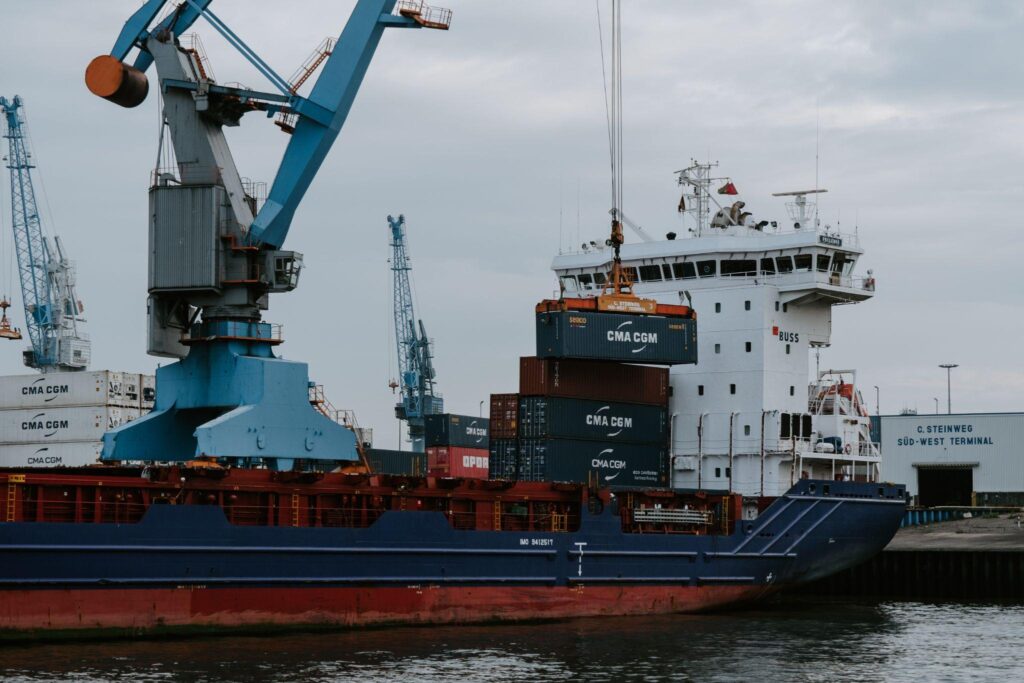With how interconnected the world is nowadays, it’s not surprising that international business relies so heavily on efficient transportation systems. Among these, the maritime industry stands out as a crucial pillar, facilitating the movement of goods from all across the globe.
From the towering cargo ships to the bustling pots, we’ll take a deeper look into how global maritime operations influence the success of international business endeavors.

The Backbone of Trade: Maritime Industry’s Significance
The Role of Maritime Routes in Global Trade
Navigating global markets involves identifying the most efficient routes to transport goods. Maritime routes, often referred to as “sea lanes,” are the veins through which international trade flows.
These routes connect major economic hubs and allow goods to traverse vast distances, impacting the logistics of various industries.
Ports as International Trade Hubs
Ports act as gateways to nations, facilitating the movement of goods from ships to land-based transportation. They serve as meeting points for different cultures, enabling the exchange of not only products but also ideas.
A successful business often hinges on the proximity and efficiency of these ports in facilitating the movement of goods.
Economic Impetus: Job Creation and Economic Growth
The influence of the maritime industry on international business goes far beyond shipping routes and ports. It serves as a pivotal force for job generation and economic advancement on both local and global levels. The sectors of shipbuilding, repair, and maintenance play a crucial role in providing opportunities for skilled labor.
Moreover, the demand for auxiliary services such as logistics, warehousing, and transportation amplifies the industry’s ripple effect on various sectors.
Maritime Industry’s Influence on International Business
Supply Chain Management and Efficiency
The maritime industry plays a pivotal role in shaping supply chain dynamics. Companies engage in complex supply chain management strategies to ensure the timely delivery of goods.
The predictability and efficiency of global maritime operations directly impact a business’s ability to meet customer demands and maintain inventory levels.
Cost-Effectiveness and Economies of Scale
Shipping goods via sea is often more cost-effective than other modes of transportation.
The ability to transport large quantities of goods in a single voyage leads to economies of scale, reducing per-unit transportation costs. This cost advantage directly affects a business’s bottom line and competitiveness in the market.
Risk Management and Sustainability
Navigating global markets comes with inherent risks, including geopolitical tensions and natural disasters. The maritime industry’s influence extends to risk management and mitigation strategies.
Businesses must assess the geopolitical stability of regions and the environmental impact of their shipping choices to ensure the sustainability of their operations.
Challenges and Innovations in the Maritime Industry
Technological Advancements
The maritime industry has embraced technological innovations to enhance operations:
- Automation: Ships equipped with advanced automation systems streamline various processes, reducing the need for extensive manual intervention.
- Real-Time Tracking: Satellite-based tracking systems provide accurate, real-time information about vessel locations, helping optimize routes and manage delays.
- Data Analytics: Utilizing data analytics, companies can analyze historical shipping data to predict trends, optimize routes, and make informed decisions.
- Cybersecurity: With increased digitalization, ensuring the safety of maritime systems and keeping businesses in this industry and their customers’ data secure has become paramount to protect against potential threats.
Environmental Concerns and Regulations
As the world prioritizes environmental sustainability, the maritime industry faces pressure to reduce its carbon footprint. Stricter regulations on emissions and waste disposal impact how ships operate. International businesses must adapt to these changes, considering the environmental impact of their shipping choices.
Weathering Global Challenges
Amidst global challenges, the maritime industry has showcased remarkable resilience. Whether facing economic downturns, geopolitical tensions, or health crises, it has not only adapted but flourished. This unwavering ability to endure and operate solidifies its pivotal position as a cornerstone in maintaining international business continuity.
Navigating Global Market Trends
Digital Disruption and E-Commerce
The emergence of e-commerce has further accentuated the maritime industry’s significance in the domain of international business. The sharp rise in online retail activity has given rise to an escalated need for efficient shipping and prompt delivery services. In light of these dynamic shifts in consumer preferences, the maritime sector is compelled to undergo a digital transformation.
Emerging Markets and Trade Routes
As emerging markets become key players in the global economy, the maritime industry has to navigate new trade routes and establish connections to these regions. Successful businesses are those that identify these opportunities early and leverage the maritime industry’s infrastructure to tap into them.
Leveraging the Maritime Industry’s Potential: Actionable Insights
To harness the benefits of the maritime industry for international business success, consider the following:
- Strategic Route Planning: Optimize shipping routes to minimize costs and delivery times.
- Technological Integration: Embrace cutting-edge technologies for real-time tracking and supply chain management.
- Environmental Responsibility: Prioritize eco-friendly shipping practices to comply with regulations and enhance brand image.
- Cultural Sensitivity: Understand the cultural nuances of port cities to foster positive business relationships.
Conclusion: Sailing Towards a Connected Future
In the vast expanse of global markets, the maritime industry is the thread that weaves economies and nations together. Its impact on international business is profound, shaping trade, fostering diplomacy, and propelling economic growth. As the industry continues to navigate uncharted waters, its legacy as a driving force in the world of commerce remains steadfast, propelling us towards a connected and prosperous future.
In a world where seas connect more than they divide, the maritime industry remains an ever-evolving testament to the power of human enterprise and collaboration.
To read more on topics like this, check out our Website for more business related articles.




